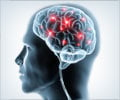- The evidence on the role of dinner timing in the development of cardiovascular disease (CVD) is limited
- A new study examined the associations between dinner timing and the risk of mortality from stroke, coronary heart disease, and cardiovascular disease
- It suggests that having irregular dinner timing was an independent risk factor and associated with an increased risk of hemorrhagic stroke and mortality
Read More..
This is How You Might be Prone to Hemorrhagic Stroke
Hemorrhagic strokes make up about 13% of the stroke cases. They are caused by the rupturing of the weakened blood vessel and bleeding into the affected area of the brain. This accumulation of blood compresses the surrounding brain tissue as it is unable to expand due the skull (1✔ ✔Trusted SourceHemorrhagic Stroke (Bleeds)
Go to source).
Uncontrolled high blood pressure and trauma (such as a car accident) are the most common risk factors for hemorrhagic stroke.
While stroke due to trauma is not modifiable but stroke due to high blood pressure is preventable if one knows what lifestyle changes are required by keeping the pressure under control besides regular medication.
How Meal Timings Can Raise The Risk Of A Deadly Stroke?
To explore more about the role of lifestyle in stroke, researchers examined the associations between dinner timing and risks of mortality from stroke, coronary heart disease, and total cardiovascular diseases.They categorized participants into three groups: the early dinner group (before 8 pm), the irregular dinner group (time irregular), and the late dinner group (after 8 pm).
It was found that those who consumed their dinner at irregular times had an increased risk of hemorrhagic stroke mortality. No significant association was found between dinner timing and the risk of mortality from other types of strokes — such as an ischaemic stroke (where blood supply to a part of brain stops)(3✔ ✔Trusted Source
Supper Timing and Cardiovascular Mortality: The Japan Collaborative Cohort Study
Go to source).
There was also no evidence to suggest a link between meal timing and coronary heart disease or cardiovascular disease risk.
It is also well known that blood pressure may rise post-dinner The irregular dinner group and increased risk of stroke were due to this rise and immediate sleep without any activity.
The irregular hormonal secretion that occurs can also affect both blood sugar and blood pressure levels. So, if you have dinner too late and go to sleep, then the food is not very well metabolized and it can lead to high blood sugar. This habit in the long run can result in increased deposition of fat, which may also affect the stroke risk.
What Is The Right Time To Eat Dinner For Avoiding Stroke Risk?
Doctors recommend not to immediately go sleep after meals which would help streamline the hormonal secretion and nerve transmitter balance which has a significant role in maintaining the blood pressure, blood sugar level, and sleep.It is generally advised that you should take dinner before 8 pm for an overall healthy lifestyle. Give at least a gap of an hour or more before you hit the bed.
You can also do light exercises before you go to bed which leads to better regulation of your blood sugar level and blood pressure. It is both the blood pressure and carbohydrate metabolism that helps to prevent the risk of stroke (4✔ ✔Trusted Source
Stroke
Go to source).
Most strokes happen in the middle of the night or early in the morning. So, there is a significant possibility that altering the timing of your dinner could be a very effective way of preventing stroke.
Symptoms of Stroke
Get to know the early symptoms of stroke for early intervention.Symptoms- Face drooping to one side, inability to smile or speak, weakness in the arms, sudden numbness on one side of the body, nausea, vomiting, sudden severe headache, loss of memory, dizziness, and sudden loss of consciousness are the warning signs of stroke one must be aware of (2✔ ✔Trusted Source
Hemorrhagic Stroke
Go to source).
It is important to give immediate medical support to a patient in case of a stroke as it can cause long-term damage, if the brain is deprived of oxygen for too long.
References:
- What is Hemorrhagic Stroke? - (https://www.stroke.org/en/about-stroke/types-of-stroke/hemorrhagic-strokes-bleeds)
- Hemorrhagic Stroke - (https://www.mountsinai.org/locations/cerebrovascular-center/conditions/stroke/hemorrhagic-stroke)
- Supper Timing and Cardiovascular Mortality: The Japan Collaborative Cohort Study - (https://www.mdpi.com/2072-6643/13/10/3389/htm)
- Stroke - (https://www.mayoclinic.org/diseases-conditions/Stroke/symptoms-causes/syc-20350113)
Source-Medindia










